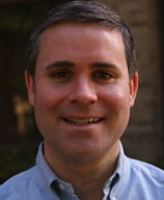
On Sept. 13, the U.S. Census Bureau will release official poverty estimates for 2010, and those numbers are likely to be higher than last year’s staggering 14.3 percent poverty rate for 2009.
However, Census poverty figures are based on a narrow measure of income that often doesn’t accurately reflect an individual’s true economic circumstances, according to James Sullivan, associate professor in the University of Notre Dame Department of Economics.
“A different measure of poverty that’s based on consumption, rather than income, would not only measure poverty more accurately, but would lead to a better understanding of the effects of policy and would help lawmakers craft policies to better serve the nation’s poorest,” according to Sullivan, whose research examines the consumption, saving, and borrowing behavior of poor households in the U.S., and how welfare and tax policy affects the well-being of the poor.
The Census poverty measure ignores the effects of some of the most critical anti-poverty weapons, most notably the Earned Income Tax Credit, Medicaid, food stamps, and housing subsidies.
“Income received from food stamps, for example, grew by more than $14 billion in 2009. By excluding these benefits in measuring poverty, the Census figures fail to recognize that the food stamps program lifts many people out of actual poverty,” Sullivan says. “If these programs are cut back in the future, actual poverty will rise even more.”
Using income-based numbers only also overlooks the struggles of many Americans who are tightening their belts—those who are worried about losing their jobs or facing foreclosure, or those who devote a large chunk of their paychecks to paying off medical bills. The standard of living for these people is lower than their income would suggest.
A research affiliate at the National Poverty Center, Sullivan co-authored a paper on the consumption, income, and well-being of families that has been cited in congressional testimony on how to improve poverty measurement in the U.S.
Learn More>
Originally published at newsinfo.nd.edu.


